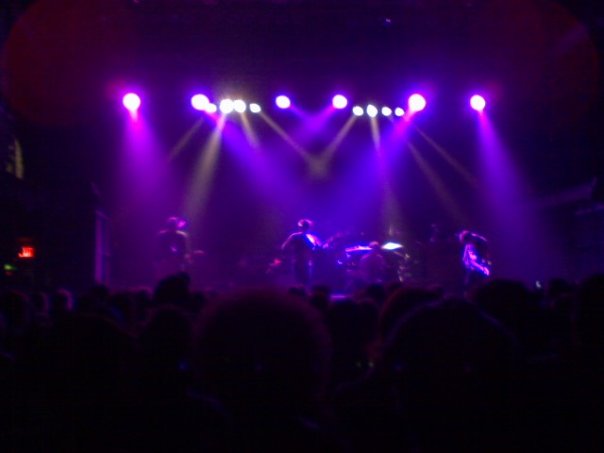
My friends and I had never been to Wicker Park before. We were told that as fans of “hipster” culture, we would be right at home among the old record and book stores and trendy eateries.
We were in town for a concert at the Double Door – Canadian rockers Reignwolf were returning to Chicago after an explosive performance at last summer’s Lollapalooza festival in Grant Park. After standing outside for close to an hour before doors opened, we finally were released into the dark innards of the venue, the only light coming from an ironic disco ball hanging in front of the tiny stage.
We were front row – our eardrums would punish us for days afterwards. Nothing could compare to what we were going to experience. We knew we would become part of lead singer and guitarist Jordan Cook’s stage antics, from holding his bass drum in place to absorbing the sweat he unleashed all over the first few rows of the crowd. (There should seriously be a “Splash Zone” warning at all of their gigs.)
The roadies put the final touches on Reignwolf’s equipment as a lady was pushing through to our left.
“Can I come forward for a second, I’d just like to take a picture with his bass drum.”
No big deal, people always take photos at shows, I figured. Everybody else was also snapping a pre-show picture. She had a fellow fan snap a photo, but instead of returning to her previous place in the crowd, she remained up front. Some people weren’t too happy with that, but we just laughed at their gullibility and returned our gaze to the smoking amp stacks.
The lights dimmed and Reignwolf’s guitar reverberated through the bar, merch table, lounge, Wicker Park. At that very moment, my friends and I knew we would be in for a ride. Nothing we would experience in our lives from that moment on would top this. Yet at that very moment, this lady, who had so desperately pushed to be up front, pulled out her cell phone and began recording the show. The phone would not return to her pocket until Cook’s final chords rang out.
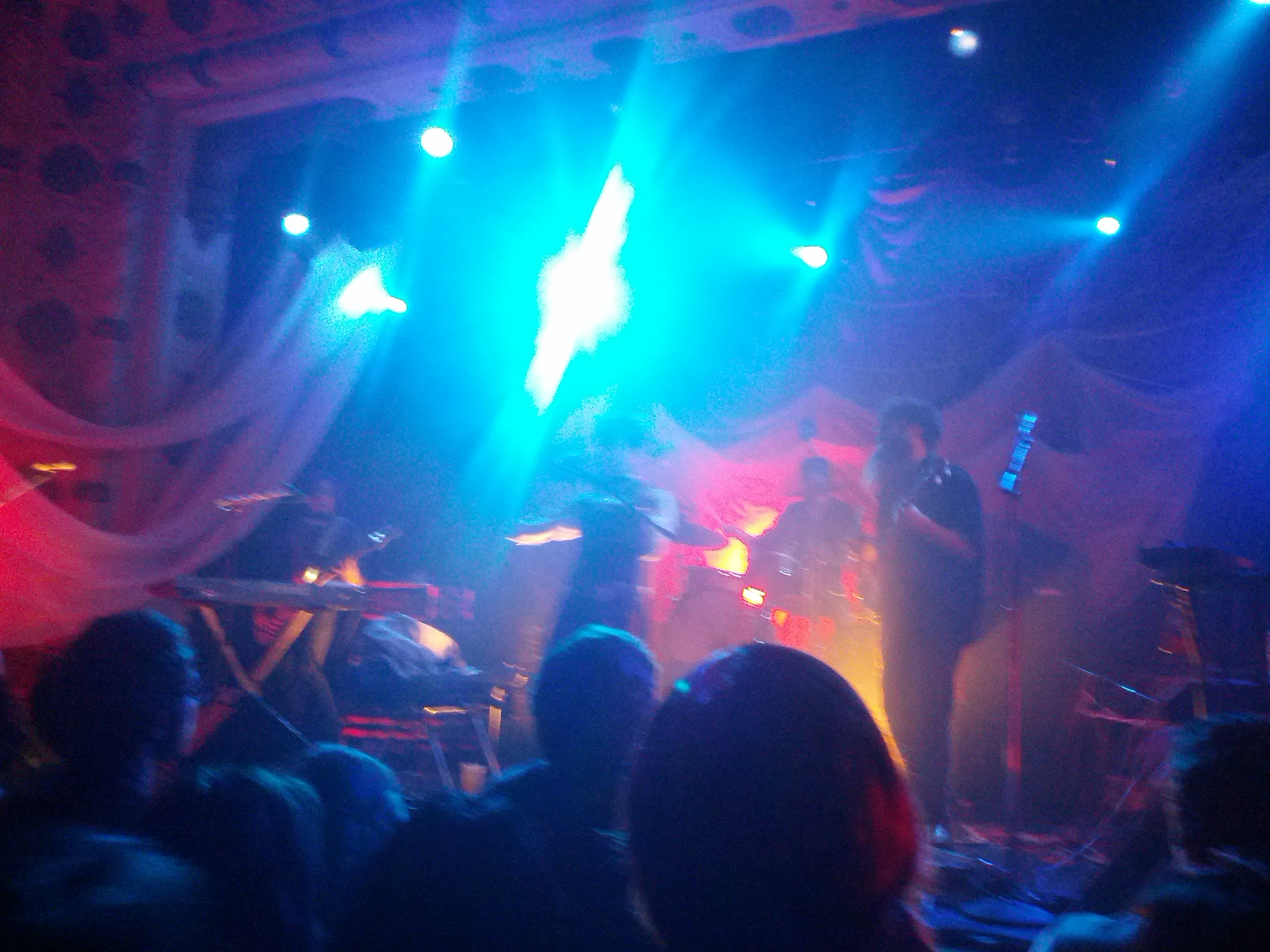
Taking pictures and recording songs are common practices among concertgoers. According to T-Mobile, 47 percent of any given audience text others during a show, while 32 percent engage in social media during a show. In an age where over half of the adult population in the United States owns a smartphone, these numbers are pretty astounding, especially when considering small concert venues like Chicago’s own Metro or Lincoln Hall. Cool moments on stage (Jeff Beck wailing away to “A Day in the Life” in a glowing spotlight) or even photos of my favorite musicians (Annie Clark of St. Vincent) have moved me to snap the moment for posterity. I’m not surprised that my classmates whipped out their devices to capture 2 Chainz and Chance the Rapper's sets this past weekend at Dillo Day.
More recently, I’ve ditched my camera or phone for what I think is the best lens to experience a concert: my eyes and ears. I get it, you want to be like James Murphy, to be able to say “I was there.” But you also want a show that you can tell your grandkids about years down the line. Can you get that through a tiny digitalized reenactment of the show? Probably not.
Concertgoers are now just as content watching live concerts through their phones or camera screens as they would be enjoying the concert without the technological temptation. In the old days, these same people (or, most likely, their parents) were covertly plugging their cheap audio devices into the venue’s soundboard, which they distributed online as bootlegs. Of course, this would evolve into sacred bootleg recordings that caught incredible musical moments and as concerts become more visually impressive, one could argue that phones and cameras are serving a similar purpose. The only difference is that phones and cameras are more obtrusive to the artist’s and to fellow fans. Moreover, professional photo equipment is already banned from most, if not all, venues, and the impressive lights at these shows don’t look so great through smartphone quality camera-phones.
Further, those concertgoers are blocking those around them for what? A couple out-of-focus pictures or a jumbled mosaic of unintelligible pixels and a song that is basically unrecognizable. YouTube is becoming littered with low-quality footage of shows that probably spoils the element of surprise for other fans who plan on attending a show in the future. Everybody experiences the show differently, and no single photo or video makes you any more special than the kid in the Pink Floyd t-shirt standing next to you.
It’s to the point where iTunes and Spotify could give you a similar thrill and the concertgoer becomes oblivious to the true power of the moment. Would these same people think of taking their cameras out during an opera or Broadway performance? Why would that be considered bad taste but concert phone usage is acceptable? Just because concerts are not as formal doesn’t mean the same respect for the artists doesn’t apply.
For those of you who may not be completely in tune with concert culture, who might be rolling your eyes every time I mention the “experience” or “power of the moment,” studies have shown just how powerful concerts can be for the human psyche. Yes, it's the "You had to be there to understand" cliche, but studies show that concerts do have a powerful effect on us. Aside from a therapeutic purpose, music can be psychologically profound.
“We see the coercive power of music... at rock concerts where thousands of people, as one, may be taken over, engulfed or entrained by the music, just as the beat of war drums can incite extreme martial excitement and solidarity,” wrote famous author and neurologist Oliver Sacks in an article for Oxford Journal.
At the same time, psychologist Linda Henkel discovered a “photo-taking impairment effect,” where reliance on photo-taking devices leads to less memory of the items or moments you take photos of. Depending on this “external memory aid” allows you to transfer all your efforts to remember the show to a memory card.
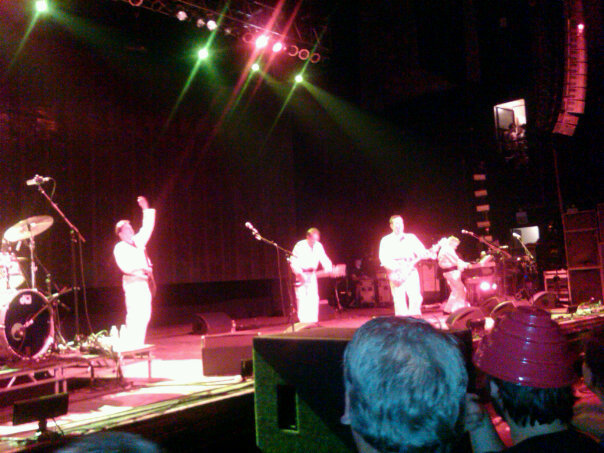
A Firebird mandolin?!?! I had never expected to see someone play an electric mandolin the way Jordan Cook was.
The woman to our left was being stubborn. She was recording every song and sending them to a friend, but none of the messages were making it through. I had noted right before the set started that my phone was struggling to get service, so I just decided to shut it off for the night. But her phone was just so obviously obstructive to my view and other’s views, and she didn’t give a damn.
To our right, another woman, this one a little bit younger, had her phone out too. It was almost an unspoken competition between the two, to see who could record the most songs from the show. She was also obviously inebriated to the point where negotiating with her was not an option. Jordan Cook was on to the solo part of his show, where he drums and shreds at the same time in an act of incredible musical ability. But we were getting a little bit angry because of how the ignorance of our crowd-mates was affecting how we were taking in the show.
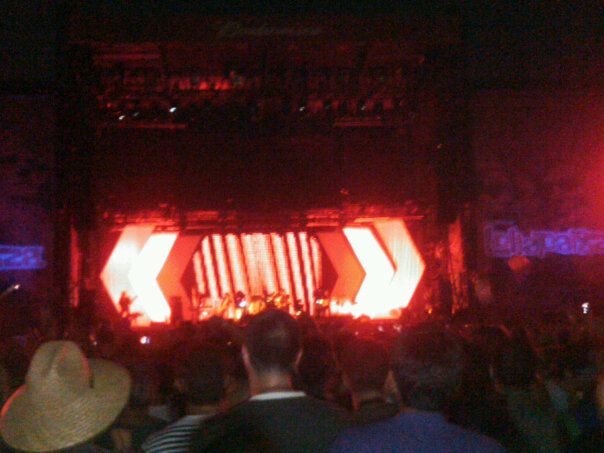
It’s disrespectful to everyone around you. I’m not saying that every single recording device should be powered off for the entirety of the show, because I personally think a few photos isn’t that big of a deal. I’m mainly referring to those who have their phones or cameras out for most of the concert. Taking photos of every single cool moment or recording every single one of your favorite songs is disruptive to those around you and it ultimately ruins your own experience. I’ve even seen groups of friends texting each other or texting other friends about the show, during the show. The glow from these pointless messages can really be distracting and when the people behind you, you demonic device-wielder, ask for the phones to be put away, you should grant them visual peace.
It’s disrespectful to your favorite artists. Some bands actually do encourage the use of these devices during their shows. Official band contests for the best concert photos or even tweeting at the band for encore requests are actually somewhat common. Most importantly, smaller bands like seeing this amateur footage on YouTube and Facebook gaining views and likes in a pseudo-grassroots promotion. Social media can really be useful and lucrative for many artists.
From what I’ve seen and read, artists generally prefer their fans put away any recording devices during their performances. Two of the recent concerts I’ve seen (Neutral Milk Hotel and St. Vincent) had moments at the beginning of the show where the artist specifically asked their fans to ditch their devices to “keep everyone in the moment,” as Jeff Mangum so kindly put it. As Annie Clark ran out on stage to take her place, cameras and phones popped up instantly, eliciting an instant and loud berating from my friend and others who wanted to respect St. Vincent’s request. A notable recent case was the Yeah Yeah Yeahs’ plea on the door of the concert venue for the audience to put away their smart devices. I think it's pretty ironic when these artists write songs about digital brainwash and the overuse of such devices, but the meaning seems to breeze over their fans' outstretched camera phones.
What are some solutions? It wouldn’t be fair to have enormous bouncers chase around every single person that whips out their iPhone, much like a manic Lucille Ball trying to wrap every piece of chocolate that makes its way down the conveyor belt. Aside from any technological experiments (devices on-stage to block photo or video), a lot of different options have been tested. Many venues already prohibit professional recording devices and the use of flash. Several big bands offer their official concert audio for reasonable prices. Music festivals even stream their concerts for days or weeks after the show as a way to allow festival audiences to re-watch their experience in a high-quality, easy-to-access manner. Bands even release concert DVDs – Led Zeppelin’s Celebration Day, LCD Soundsystem’s Shut Up And Play The Hits – or concert footage on their YouTube channels. (In which, you can see glowing smartphones littered throughout the crowd, ironically enough.)
Perhaps our consumer culture is too self-obsessed beyond repair. We only care about our own experience, without necessarily taking others into consideration. We take photos and video of concerts to show off to our friends, to tell them that we had the ability to attend a concert. According to a Ticketmaster and Live Nation study, men and women between 18-34 (that's us!) make up nearly half of all concert crowds, while half of fans attended a concert at a club or theatre, which constitutes the majority of Chicago area music venues. I get it. In an age of Snapchat and YikYak, it’s hard for us to stay focused.
I’ve been there – I’ve taken photos at every concert I’ve been to, video at a few, but I’ve only recently realized the harm to my own experience and the experience of those around me. When I was a lot younger, I would record my favorite songs live in concert, only to revisit them months later and realize how horrible the quality was.
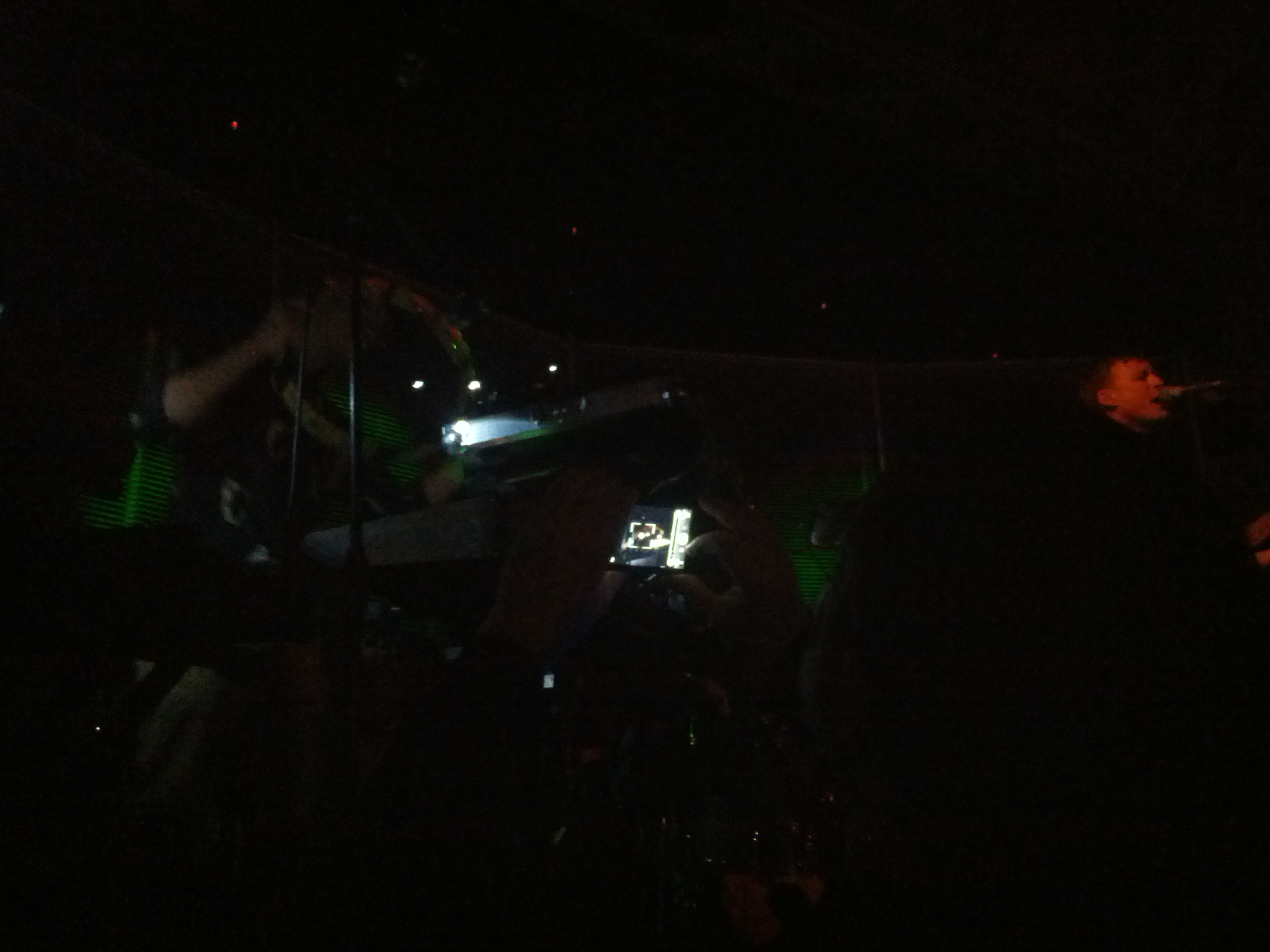
Jordan Cook dropped his soaked towel at the front of the stage. We reacted too slowly and another fan grabbed it first. She looked it over and turned to us.
“Here. I can tell you guys are real fans,” she said.
She glanced over to those taking photos of the aftermath, obviously implying that because we weren't on our "smart" devices the entire time, we actually enjoyed the music.
Our eyes lit up as we grasped the sweaty towel in probably the only time in my life I was excited to touch someone else’s dirty laundry. We started our drive home.
“I can die happy now,” my friend Grant said. It was his first real rock concert. “But, you know, those people with their phones out were annoying. I don’t think they experienced the show the way we did.”